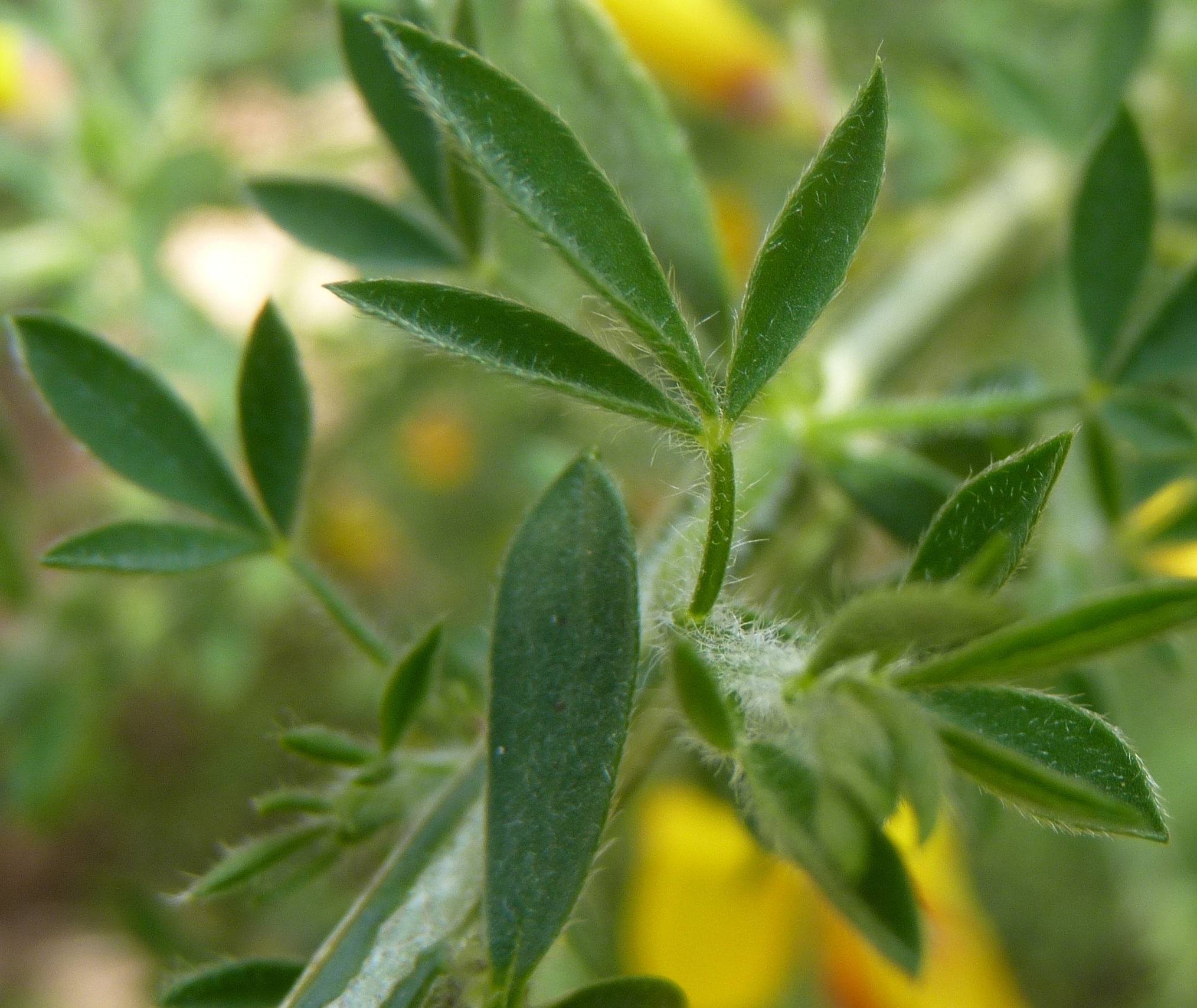
Greek kytisos — a kind of clover.
Evergreen or deciduous shrubs or occasionally small trees with branches often ribbed. Leaves alternate, mostly of 3 leaflets, occasionally simple or with 1 leaflet; stipules extremely small or absent. Flowers in terminal or axillary clusters, yellow or white. Calyx 2-lipped, the lower lip with 3 short teeth. Stamens 10, united into a tube; style mostly incurved. Fruit pod oblong, flat, leathery or papery.
Grown for general hardiness, flowers and foliage. The readiness of species to hybridise has produced identification problems in horticulture.
Cytisus and Genista are at the centre of taxonomic difficulties in describing and delimiting the genera Chamaecytisus, Cytisus, Genista, Retama and Teline. The account here follows Polhill and Raven (1981). The difficulties remain with the description of species, including naturalised plants. Some botanists regard the most important characters in distinguishing Cytisus and Genista as being the appendaged seeds and 2 short teeth of the upper corolla lip in Cytisus, and the deeply toothed or notched upper corolla lip and nonappendaged seed of Genista.
33 species from W Asia, Canary Islands, N Africa and Europe.
Semi-hardwood and hardwood cuttings.
C. scoparius has been used for fibre and dyes, also as a source of nectar for bees, for soil binding in erosion control and occasionally as cut flowers for floristry.
Similar to Genista but with a curved keel and a style that is more or less evenly curved.
Gibbs (1966), Gibbs & Dingwall (1971), Polhill (1976), Polhill & Raven (1981).
Source: (2002). Fabaceae. In: . Horticultural Flora of South-eastern Australia. Volume 3. Flowering plants. Dicotyledons. Part 2. The identification of garden and cultivated plants. University of New South Wales Press.
